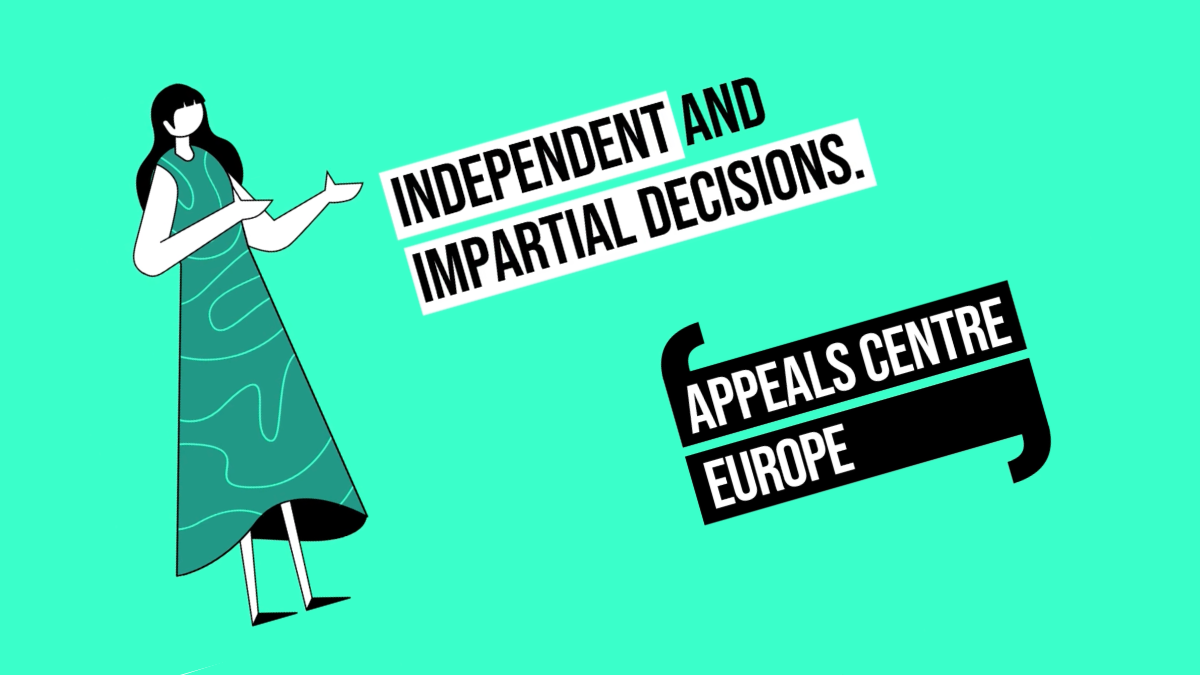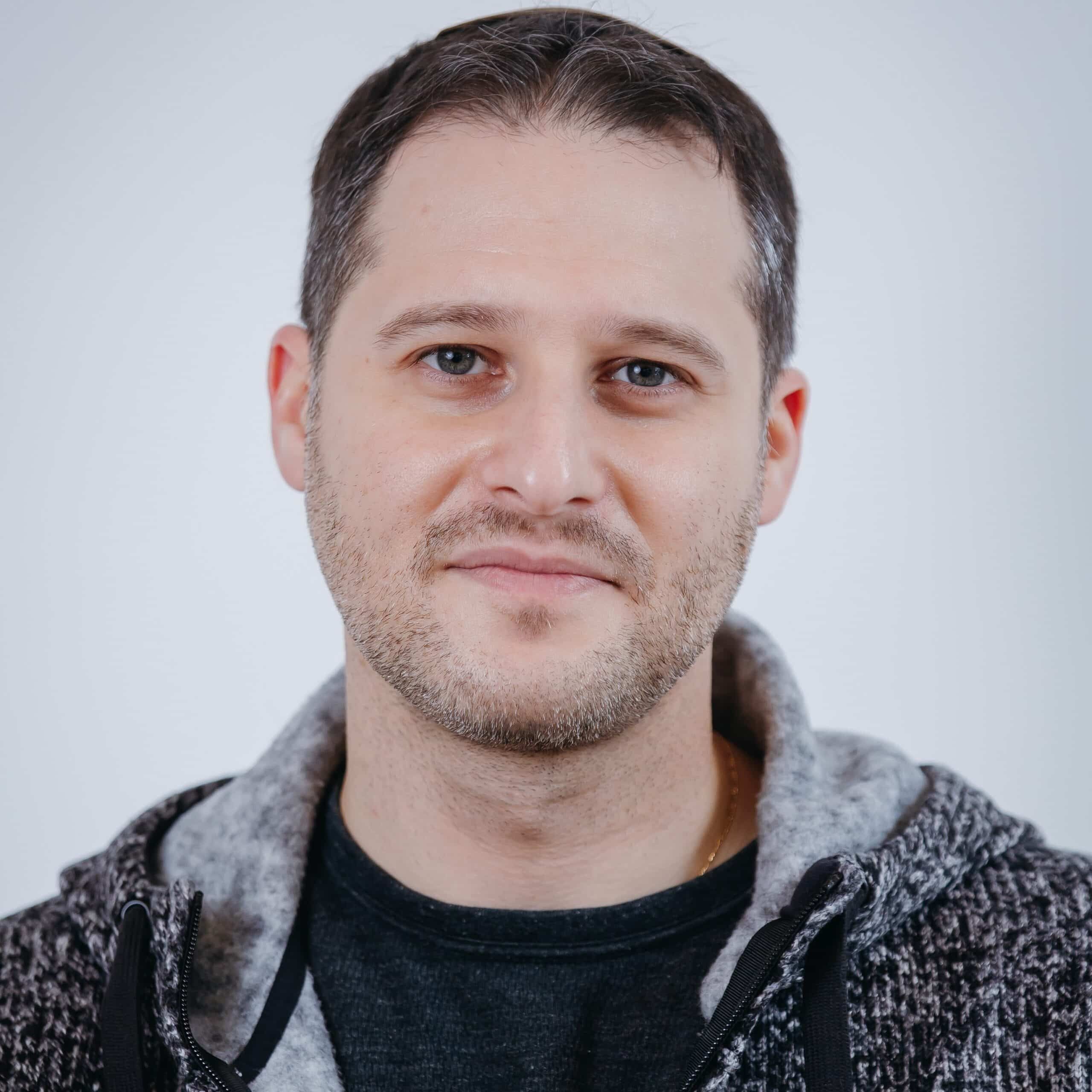Oversight Board Trust Launches EU Out-of-Court Dispute Settlement Service
Tim Bernard / Oct 10, 2024
Composite of graphics from a teaser video on the website of Appeals Centre Europe. Source
As the rollout of Europe’s sprawling Digital Services Act (DSA) continues, its sometimes-innovative legal concepts are becoming tangible operating institutions. For instance, Article 21 of the DSA sets out a mechanism by which users of social media platforms can resolve disputes over content moderation and other platform policy decisions through certified “Out-of-Court Dispute Settlement“ (ODS) bodies. These entities must be certified by their host EU Member State’s Digital Services Coordinator (DSC), typically a regulatory agency that is charged with managing the DSA in their national jurisdiction.
This week, Coimisiún na Meán, the Irish broadcasting and online safety regulator that serves as that country’s DSC, announced that it had certified a new entity called Appeals Centre Europe as its first ODS body. Although this was not the first ODS body to be certified in Europe, the announcement garnered significant attention among those concerned with such things, perhaps due to the outsize role of Ireland in hosting the European headquarters of most tech giants, but more likely due to the fact that the Appeals Centre was established by the Oversight Board Trust, which administers Oversight Board, the quasi-independent content moderation policy “supreme court” created and funded by Meta.
The Oversight Board has notable similarities to ODS bodies (as well as significant differences), and so this development does not come as a complete surprise. Furthermore, Thomas Hughes, its former director, who is now the CEO of the Appeals Centre instead, published an article on the ODS system earlier this year. The Appeals Centre is not accepting cases yet, but intends to do so by the end of the year. Its launch of note, as each new entity birthed under this complicated regulatory regime tells more about how things will work in practice, and where concerns may arise.
How Does Appeals Centre Europe Fit into the ODS System?
The nature and potential of the ODS system was discussed previously in Tech Policy Press. These are some key points about ODS bodies and explanation of how they apply for the Appeals Centre:
- They must be independent of the platforms and of the parties that use them, which may include, as well as regular users, any organization or government agency that submits notices requesting the removal of content.
- The Oversight Board is, at least in theory, independent from Meta, but in any case the Appeals Centre was established as an independent entity with a one-time grant from the Oversight Board Trust, and with three out of seven Board Members who are also Trustees of the Oversight Board.
- They may be certified to resolve disputes regarding either the platforms’ own terms of service (i.e. content policies), or regarding one or more areas of illegal content that must be removed under the DSA, or both.
- The Appeals Centre is presently certified to handle disputes regarding platforms’ terms of service only.
- Fees may be charged initially to users/reporters, and fees are always charged to platforms. If the platform loses the case, it is responsible for the entirety of the fees. The fees may not exceed the ODS body’s costs, implying that ODS bodies must function effectively at cost.
- Claimants will be charged a “nominal fee” by the Appeals Centre, to be refunded if their claim prevails. There does not appear to be any avenue for Appeals Centre revenue to directly support Oversight Board activities.
- Users or reporters have choices under the DSA: if they want to appeal a decision, they can use platforms’ own appeals processes (mandated by Article 20 of the DSA); any ODS body that is certified to process that kind of claim and is ready to work with the platform in question; or judicial proceedings. Absent a commitment by the platform at the outset of the ODS proceeding, ODS decisions are non-binding.
- The Appeals Centre is preparing to accept disputes on Facebook, TikTok and YouTube at inception. (It is interesting to note that Instagram and Threads, also under the Oversight Board’s purview, are not included on this list.)
What Other ODS Bodies Have Been Certified?
The tracker maintained by the compliance advisory and content moderation company Tremau lists three other certified ODS Bodies, which appear to be already accepting disputes:
- OPVT (Hungary): Independent from the local regulator, NMHH, but established by it, with Hungarian media associations suggesting experts who were appointed to the initial board. OPVT is not limiting its work to specific platforms and can handle all claims of illegal content or enforcement of terms of service. Users have a fee of 3000 HUF (about $8), payable to a Hungarian treasury account, to submit a dispute.
- ADROIT: (Malta) A new line of business for a firm (RGOAL Ltd) that also runs an existing alternative dispute resolution service for the online gambling sector. It accepts any disputes regarding any platform, and does not charge users a fee.
- User Rights (Germany): Co-founded by Niklas Eder, who used to work for the Oversight Board and is now an academic researcher focusing on European tech policy (and also a coauthor of the Tech Policy Press article on the ODS system cited earlier). Eder also directs the associated Article 21 Academic Advisory Board, which aims to be a resource for the ODS system at large. User Rights accepts disputes in English and German, regarding terms of service and content illegal under German law on Instagram, TikTok, and LinkedIn. It does not charge a filing fee.
What Does this Mean for Free Expression?
Daphne Keller, the director of Stanford Cyber Policy Center’s Program on Platform Regulation, has raised the critique that the Oversight Board spreading its influence over multiple platforms is less than ideal. Freedom of expression is best served by a diversity of forums with a diversity of content policies, governed by a diverse set of values and perspectives on enforcement. (It should be noted, however, that the Appeals Centre will only be making determinations based on the platforms’ own policies, which they develop at their own discretion.) Keller also offered that even though logistical efficiency, rather than any ideological bias, is likely to be the main motivation for platforms in preferring an ODS body, the resulting concentration of decision-making in one body may still prove problematic.
While claimants are ultimately free to choose any ODS body that is certified to handle their claim and willing to work with the platform at issue, Daniel Holznagel, a German judge and platform regulation expert, pointed out that there are ways that platforms can steer users / reporters to ODS bodies that they prefer, namely by accepting more of their determinations, or by making the process easier for those bodies.
By bringing with it considerable expertise from working with Meta, some amount of seed funding, and by virtue of its location in Ireland, Appeals Centre Europe is well placed to work with and win the preference of large platforms, who may be able to steer claimants towards it. However, other ODS bodies are still empowered by the DSA to create systems that are more user-friendly to attract claimants (those that do not charge users may already have a significant advantage) and counterbalance any steering from the platforms. To find out how the Article 21 regime is actually playing out, DSA watchers will be eagerly awaiting the biannual reports on the ODS from national DSCs.
This piece was updated to clarify that it is the Oversight Board Trust, rather than the Oversight Board itself, that launched the Appeals Centre, and that the Appeals Centre intends to hear disputes by the end of the year.
Authors
